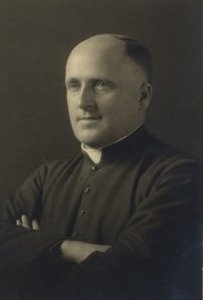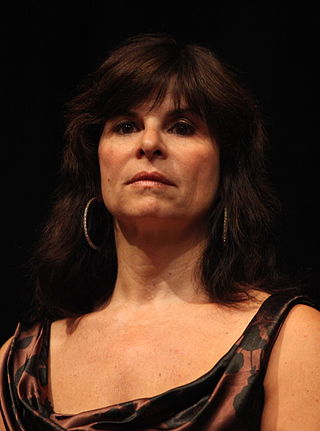Related Research Articles

The Prix Albert-Tessier is an award by the Government of Quebec that is part of the Prix du Québec, given to individuals for an outstanding career in Quebec cinema. It is awarded to script-writing, acting, composing music, directing, producing and cinematographic techniques. It is named in honour of Albert Tessier.

My Aunt Aline is a 2007 Canadian comedy film directed by Gabriel Pelletier.
Jean-Carl Boucher is a Canadian actor and filmmaker from Quebec, best known for his recurring performances as a fictionalized version of filmmaker Ricardo Trogi in Trogi's semi-autobiographical series of drama films. To date he has played Trogi in the films 1981, 1987 and 1991, with 1995 forthcoming.

Janice Nadeau is a Canadian illustrator, art director and animation director.
Québec Cinéma presents an annual award for Best Actress to recognize the best in the Cinema of Quebec.
Québec Cinéma presents an annual award for Best Actor to recognize the best in the Cinema of Quebec.
Québec Cinéma presents an annual award for Best Supporting Actor to recognize the best in the Cinema of Quebec.
Québec Cinéma presents an annual award for Best Supporting Actress to recognize the best in the Cinema of Quebec.
Québec Cinéma presents an annual award for Best Director to recognize the best in the Cinema of Quebec.
Vital Signs is a Canadian drama film, directed by Sophie Deraspe and released in 2009. The film stars Marie-Hélène Bellavance as Simone, a young woman who responds to the death of her grandmother by abandoning her university studies to volunteer as a caregiver for the dying in a palliative care centre, while simultaneously juggling her casual relationship with musician Boris.

Guylaine Tremblay is a Canadian actress from Quebec. She is most noted for her performance in the film Summit Circle , for which she won the Prix Jutra for Best Actress at the 10th Jutra Awards in 2008.
The Prix Iris for Best Live Action Short Film is an annual film award presented by Québec Cinéma as part of its Prix Iris program, to honour the year's best short film made within the cinema of Quebec. Starting at the 16th Jutra Awards, the award was presented to the directors and producers of the short films. Prior to that ceremony, only the directors received nominations.
The Prix Iris for Best Animated Short Film is an annual film award presented by Québec Cinéma as part of its Prix Iris program, to honour the year's best animated short film made within the cinema of Quebec.
Kamataki is a Canadian-Japanese co-produced drama film, directed by Claude Gagnon and released in 2005.
Exile is a Canadian drama film, directed by Charles-Olivier Michaud and released in 2012. The film stars Francis Cleophat as Samuel, a teenager in Haiti who is left alone after his father is kidnapped by government forces; learning that his mother whom he had long been told was dead is in fact still alive and merely ran off to the United States, he embarks on a quest to find her, and is helped by various "guardian angels" as he travels to Miami, New York City and Montreal in his search.
Sophie Leblond is a Canadian film editor. She is most noted for her work on the films Soft Shell Man , for which she won the Jutra Award for Best Editing at the 4th Jutra Awards in 2002, and Alexander Odyssey , for which she won the Canadian Screen Award for Best Editing in a Documentary at the 8th Canadian Screen Awards in 2020.
My Real Life is a Canadian documentary film, directed by Magnus Isacsson and released in 2012. The last film Isacsson completed before his death, the film centres on the experiences of four young men in suburban Montréal-Nord who have turned to hip hop music as a creative outlet.

A Sentimental Capitalism is a Canadian comedy-drama film, directed by Olivier Asselin and released in 2008. The film stars Lucille Fluet as Fernande Bouvier, an aspiring artist in Paris in the 1920s who unwittingly becomes the cause of the Wall Street Crash of 1929 after businessman Victor Feldman bets two of his colleagues that he can sell her on the financial market despite her lack of tangible artistic output.
Kathryn Casault is a Canadian make-up artist. She is most noted for her work on the film Babine, for which she won the Jutra Award for Best Makeup at the 11th Jutra Awards in 2009.
Nicholas Kendall is a Canadian film and television director from Vancouver, British Columbia.
References
- ↑ Gerald Pratley, A Century of Canadian Cinema. Lynx Images, 2003. ISBN 1-894073-21-5. p. 117.
- 1 2 Kathryn Greenaway, "Kayla's touching tale makes us believers". Montreal Gazette , February 27, 1998.
- ↑ Tony Atherton, "The Family Henderson : 13-year-old Meredith is the latest member of her talented family to knock on stardom's door". Ottawa Citizen , February 23, 1997.
- 1 2 3 Charles-Henri Ramond, "Kayla – Film de Nicholas Kendall". Films du Québec, February 1, 2009.
- ↑ Marke Andrews, "A difficult boy and his dog are basis for a kids' classic". Vancouver Sun , March 6, 1999.
- ↑ "Kayla wins People's Choice Award at kids' film fest". Montreal Gazette , March 12, 1998.
- ↑ "Red Violin leads pack for Jutra Awards". The Globe and Mail , January 28, 1999.